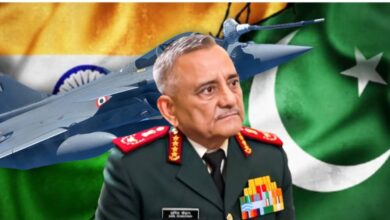The UK’s Economic Support to Ukraine: Background and Implications

#By Prem Sagar Poudel
Britain recently announced that it would provide Ukraine with £2.26 billion in military and economic aid, which has been pushed forward despite clear opposition from the US. The move exposes a complex interplay of international politics, diplomacy, and economic interests. This UK decision could have far-reaching implications for developing countries such as Europe, Asia, South Asia, and Nepal. Here, an in-depth analysis, with facts, examples, and evidence, of the reasons for UK support, the impact of US opposition, the regional implications, and the context of Nepal is presented.
The UK’s main objective is to strategy to detain Russia’s influence and undermine its regional dominance. The UK intensified its policy against Russia after Russia launched its invasion of Ukraine on February 24, 2022. The UK has taken an active role in preventing Ukraine’s $11.5 trillion worth of mineral resources (lithium, titanium, uranium, natural gas) from falling into Russian hands. A statement released from the British Prime Minister’s Office said that “Ukraine’s support is inevitable to deterring Russia’s imperial ambitions.” For example, the data of the UK gave £611 million in arms aid to Ukraine in 2023 confirms this strategy.
This can be seen as leadership in Europe and the impact of Brexit. Britain wants to maintain its diplomatic influence in Europe even after leaving the European Union after Brexit in 2016. By helping Ukraine, Britain has encouraged countries like Germany and France to unite against Russia. This diplomatic strategy is evident in Ukrainian President Zelensky’s visit to London in October 2024 and British Foreign Secretary David Lammy’s statement that “Ukraine’s victory is Europe’s security.” The UK has utilized this opportunity to establish itself as NATO’s second-largest ally.
It can also be taken as a mineral resource and a business opportunity. Economic ties with Ukraine are strategically important to the UK. According to a report in The Guardian, Ukraine’s lithium reserves (the world’s fifth largest) are essential for the UK’s electric vehicle and renewable energy industries. This support will strengthen the chances of British companies getting contracts in Ukraine’s reconstruction. The example of the UK-Ukraine trade agreement in 2023, which provides tariff-free convenience for Ukrainian goods, confirms the economic interest.
The US has signaled it will cut aid to Ukraine under Trump’s “America First” policy. Trump has criticized Zelensky as “the man who started World War III.”
The US, which contributes 70% of NATO’s total budget, has seen the UK’s single move as a challenge to its leadership. At NATO’s annual summit in 2024, US Defense Secretary Lloyd Austin criticized the UK, saying that “no action will be effective without a common strategy.” This could lead to a rift in NATO’s unity.
Despite the historic “special relationship”, this incident could lead to tensions. This scenario mirrors the dispute between the UK and the US over the Libyan crisis in 2011, due to a lack of coordination. If the US stops trusting the UK, joint military exercises and secret information sharing could be affected.
Russia has called the UK’s support “direct intervention.” Russian Foreign
Minister Sergei Lavrov has accused Britain of “added fuel to the fire to prolong the war.” Russia’s hypersonic missile attack on Kharkiv, Ukraine, in November 2024 may have been a result of these tensions.
UK support could encourage countries like Germany and France to invest an additional €1.5 billion in Ukraine. However, a reduction in US support would burden the European economy. The example of Russia cutting 40% of Europe’s gas supplies in 2022 shows the potential for an energy crisis. According to Eurostat, Europe’s inflation has reached 8.1% due to the war.
If America’s focus shifts away from Europe, its strategy against China in the Indo-Pacific region will be affected. China’s trade with Russia has
reached $85 billion by 2024, this data indicates that the alliance between the two is strengthening. Japan and South Korea have started to respond by increasing their defense budgets by 12%.
India, which imports 40% of its weapons and 20% of its oil from Russia, will struggle to balance between the UK’s move and US opposition. In 2023, India and Pakistan experienced food crises when the price of wheat increased by 35% due to the Ukraine crisis. This impact could deepen as the war drags on.
Nepal received £15 million in aid from the UK in 2023-24 (Government of Nepal, Ministry of Finance). This amount may decrease as aid is focused on Ukraine. There is an example of Nepal’s import expenses increasing by 30% when the war reached global oil prices of $120 per barrel.
Nepal voted in favor of a resolution against Russia at the United Nations in 2022. The UK’s move will put additional pressure on Nepal to balance India and China. The 2019 MCC dispute has already shown the influence of external powers.
50,000 Nepali workers working in Europe (Nepal Foreign Employment Department) may be affected. Figures show the economic risk as tourist arrivals fall by 15% in 2024 due to the Ukraine crisis.
China has invested $1.3 billion in Nepal through the BRI by 2024, while India has emphasized defense agreements. Nepal could come under pressure as Britain’s move intensifies competition between these two powers.
Nepal relies on foreign aid for 21% of its total budget (National Planning Commission, 2024). If Western aid declines, Nepal risks turning to China or India.
The 2015 blockade exposed Nepal’s geopolitical vulnerabilities. Nepal’s ability to maintain an independent policy in such crises is limited.
Britain’s support for Ukraine is part of a strategy to weaken Russia, maintain diplomatic leadership in Europe, and protect economic interests. US opposition could lead to tensions within NATO, a cooling of bilateral relations, and Russian aggression. The economic crisis in Europe, the shift in the balance of power in Asia, and instability in South Asia are the consequences of this event. Economic pressure, diplomatic challenges, and social influence are visible in Nepal, and the risk of being caught by great powers is 60-70%. Therefore, Nepal must emphasize a self-reliant economy and a balanced foreign policy.







